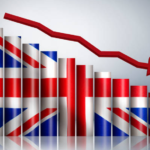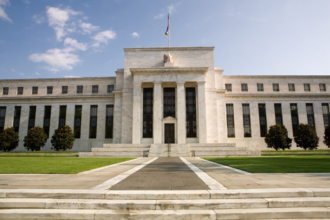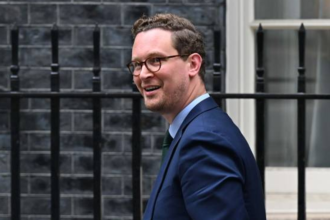UK inflation unexpectedly dipped in December, raising expectations of an interest rate cut by the Bank of England next month. The annual inflation rate fell to 2.5% in December, down from 2.6% in November, marking the first decline in three months.
This decrease was largely driven by falling hotel prices and smaller-than-usual rises in airfares, according to the Office for National Statistics (ONS). However, prices continue to rise faster than the Bank of England’s 2% target, putting pressure on policymakers.
How Did Markets React to the Inflation Dip?
The news caused UK borrowing costs to fall, rising in recent weeks. Simultaneously, the pound strengthened slightly, relieving Chancellor Rachel Reeves. Reeves had faced criticism for Budget policies that were blamed for market turmoil, including the highest government borrowing costs in 16 years and the pound dropping to a 14-month low.
Investors increasingly expect the Bank of England to cut interest rates from 4.75% to 4.5% in February. A second cut by the year’s end is also widely anticipated.
What Are the Economic Implications of This Change?
Last month, the Bank of England’s decision to hold interest rates steady reflected the UK economy’s weak performance. Between October and December, the economy stagnated with no growth. Deputy chief UK economist at Capital Economics, Ruth Gregory, commented, “This inflation figure strengthens the case for a rate cut next month.”
While UK inflation has eased significantly from its October 2022 peak, pushing up the cost of living and interest rates, the current level still weighs heavily on households. Loans, mortgages, and credit cards remain expensive, compounding financial challenges for many.
What Factors Drove the Changes in Inflation?
According to the ONS, easing price rises in restaurants and falling hotel prices significantly contributed to the drop in inflation. Slower price increases in tobacco products, including cigarettes and vape refills, also played a role.
However, these factors were partially offset by rising costs for fuel and second-hand cars. Grant Fitzner, ONS chief economist, noted, “While we’ve seen a moderation in some areas, pressures in other sectors like transport are still present.”
How Is the Government Responding to the Cost-of-Living Crisis?
Chancellor Rachel Reeves acknowledged ongoing challenges, stating, “There is still work to be done to help families across the country with the cost of living. We’ve taken action to protect working people’s payslips from higher taxes and increased the minimum wage.”
Despite this, shadow chancellor Mel Stride criticised the government, arguing, “Economic growth has been killed stone dead by this government.” Stride called on Reeves to “urgently explain how she will now achieve growth.”
In response to market turbulence, Reeves is expected to accelerate announcements on Labour’s industrial strategy.
What Challenges Do Businesses and Public Services Face?
Rising borrowing costs continue to impact government tax and spending plans, with higher interest payments on existing debt reducing the funds available for public services and investment. Darren Jones, chief secretary to the Treasury, stated, “Public services will have to live within their means.”
When asked whether this suggested upcoming budget cuts, Jones replied, “It’s just about prioritisation.”
Businesses also face mounting pressures. Jonny Gettings, director of operations at Italian restaurant and small hotel Ennio’s in Southampton, described a worsening outlook due to increases in the minimum wage, national insurance contributions, and reductions to business rates relief starting in April.
Gettings said, “Cutting staff working hours would be the last scenario, but we might have to shrink our menu, review suppliers, or change opening hours.” He added, “You can only charge so much for a menu item before the guest says, ‘Well, hang on a minute.’”
What Additional Costs Will Households Face?
Many households will face inflation-linked increases in phone and broadband bills in April. Uswitch, a comparison website, estimated that broadband bills are set to rise by an average of £21.99 per year, while mobile bills could increase by £15.90 annually.
Thanks to new regulations, contracts now disclose expected price rises in pounds and pence to provide more transparency.
Meanwhile, separate ONS data showed that rent costs surged 9% in December compared to the previous year. UK inflation and rising rent costs continue to strain household budgets. UK house prices rose 3.3% from 12 months to November, with the steepest increases seen in Northern Ireland.








